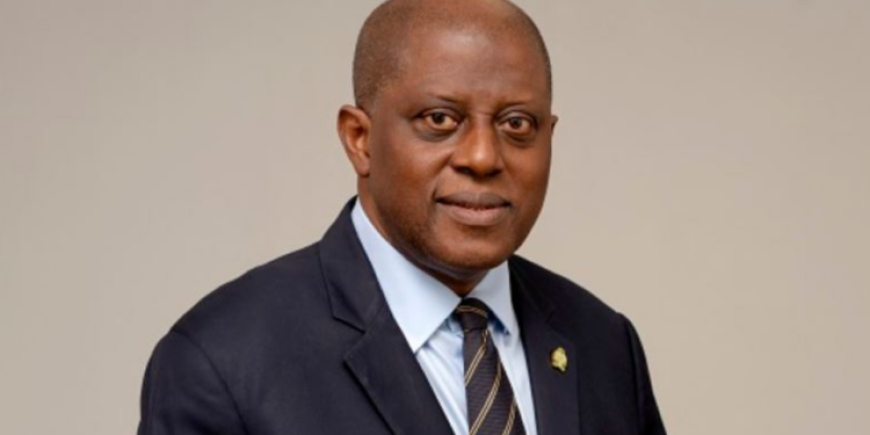FX reserves soar to $46.7bn seven-year high

NIGERIA’S foreign exchange reserves have surged to their strongest level in seven years, hitting $46.7bn as of November 14, 2025, the Central Bank of Nigeria announced on Tuesday.
CBN Governor, Olayemi Cardoso—represented by the Deputy Governor in charge of Economic Policy, Dr Muhammad Abdullahi—said the reserves had reached a new high level, the first time the country has attained such a level since 2018.
Speaking in Abuja at the 20th Anniversary of the Monetary Policy Department, Cardoso said the reserves milestone reflected renewed investor confidence, improved oil receipts, and stronger balance-of-payments inflows.
“Foreign reserves have risen to $46.7bn as of November 14, 2025, providing 10.3 months of import cover in goods and services, supported by sustained inflows and renewed investor participation across various asset classes. This accretion reflects investor confidence in our policies leading to improved oil receipts, stronger balance of payments, and renewed foreign portfolio inflows,” Cardoso said.
He argued that the stronger reserve position was a key pillar behind the naira’s stabilisation, noting that the gap between the official and Bureau de Change windows had narrowed to below two per cent. According to him, the currency’s recovery has encouraged foreign participation in Nigeria’s fixed-income and money markets, with investors responding to clearer policy signals and tighter monetary conditions.
Cardoso said the reforms driving foreign-currency inflows had also translated into sustained disinflation. Headline inflation eased to 16.05 per cent in October 2025, from 34.6 per cent at its peak in November 2024.
He described the fall as “seven consecutive months of disinflation” and “the lowest in three years,” adding that core inflation was also beginning to soften. The governor said the broader improvement in Nigeria’s economic indicators had been recognised globally.
“All three top international ratings agencies upgraded Nigeria,” he noted, citing S&P Global Ratings, which recently revised the country’s outlook from stable to positive. He described Nigeria’s removal from the Financial Action Task Force Grey List as a further boost to international confidence, saying it demonstrated the country’s “full alignment with global standards”.
The event also provided Cardoso with an opportunity to reflect on two decades of monetary policy evolution. He credited the Monetary Policy Department with several major reforms, including the introduction of the Monetary Policy Rate in 2006, the adoption of the interest-rate corridor system, strengthened monetary policy analysis, improved communication, and the ongoing transition towards a full inflation-targeting regime.
According to him, the MPD has been central to the bank’s policy design and coordination, providing technical support to the Monetary Policy Committee and the Monetary Policy Technical Committee. He said recent years had been “transformative for the Nigerian economy”, backed by decisive reforms that restored macroeconomic confidence.
Cardoso urged the department to remain forward-looking, warning that global conditions remained volatile due to geopolitical tensions, commodity price swings, and structural imbalances. On the transition to inflation targeting, the governor said it was both a technical and strategic imperative designed to anchor expectations and strengthen policy transmission.
In his opening remarks, the CBN’s Director of the Monetary Policy Department, Dr Victor Oboh, said the country’s recent economic recovery had become strong enough for Nigerians to “see a brighter future” after years of instability.
Oboh said the past few years had offered the CBN “a natural experiment” in what happens when policy choices fail and when reforms begin to correct earlier mistakes. He recalled joining the bank in October 2023 at a time he described as one of the most fragile in recent history.
According to him, “when a central bank has an FX backlog, it really means the central bank is about to default on FX applications,” stressing that the situation he met was one of a system “completely mismanaged… trying different things in the past eight years that we all now know didn’t work.”
Oboh said the consequences were visible everywhere: high inflation, a wide parallel-market premium, and depleted net reserves. He contrasted that period with what he described as the gains of the present. Nigeria’s inflation rate, he said, had “slowed to 16 per cent” as of the latest report, signalling that the forces driving rapid price increases were beginning to ease.
He noted that the foreign exchange market had rebounded and that trust in the institution had been restored. Oboh, however, warned that key challenges remained, especially the need for better alignment of fiscal policies across federal and sub-national governments.
He said ongoing reforms would eventually activate new signalling channels, improve monetary policy effectiveness, and ensure clearer guidance for markets. But he stressed that inflation targeting “as just a word doesn’t matter” unless it is backed by real structural reforms and credible transmission mechanisms.
The Guest Lecturer, former Monetary Policy Committee member Prof Abdul-Ganiyu Garba, delivered an extensive review of economic thought, tracing the theories that shape policy choices and drive global economic activity.
The IMF Resident Representative for Nigeria, Dr Christian Ebeke, also addressed the gathering, reaffirming the Fund’s backing for Nigeria’s ongoing reforms and its commitment to continued technical support as the economy stabilises.
The PUNCH observed that Nigeria’s reserve surge comes less than two weeks after the Federal Government raised $2.35bn from international markets in its latest dual-tranche Eurobond issuance. The fresh external inflow, alongside stronger FX receipts, helped lift reserves to $46.7bn, the highest level since 2018.









